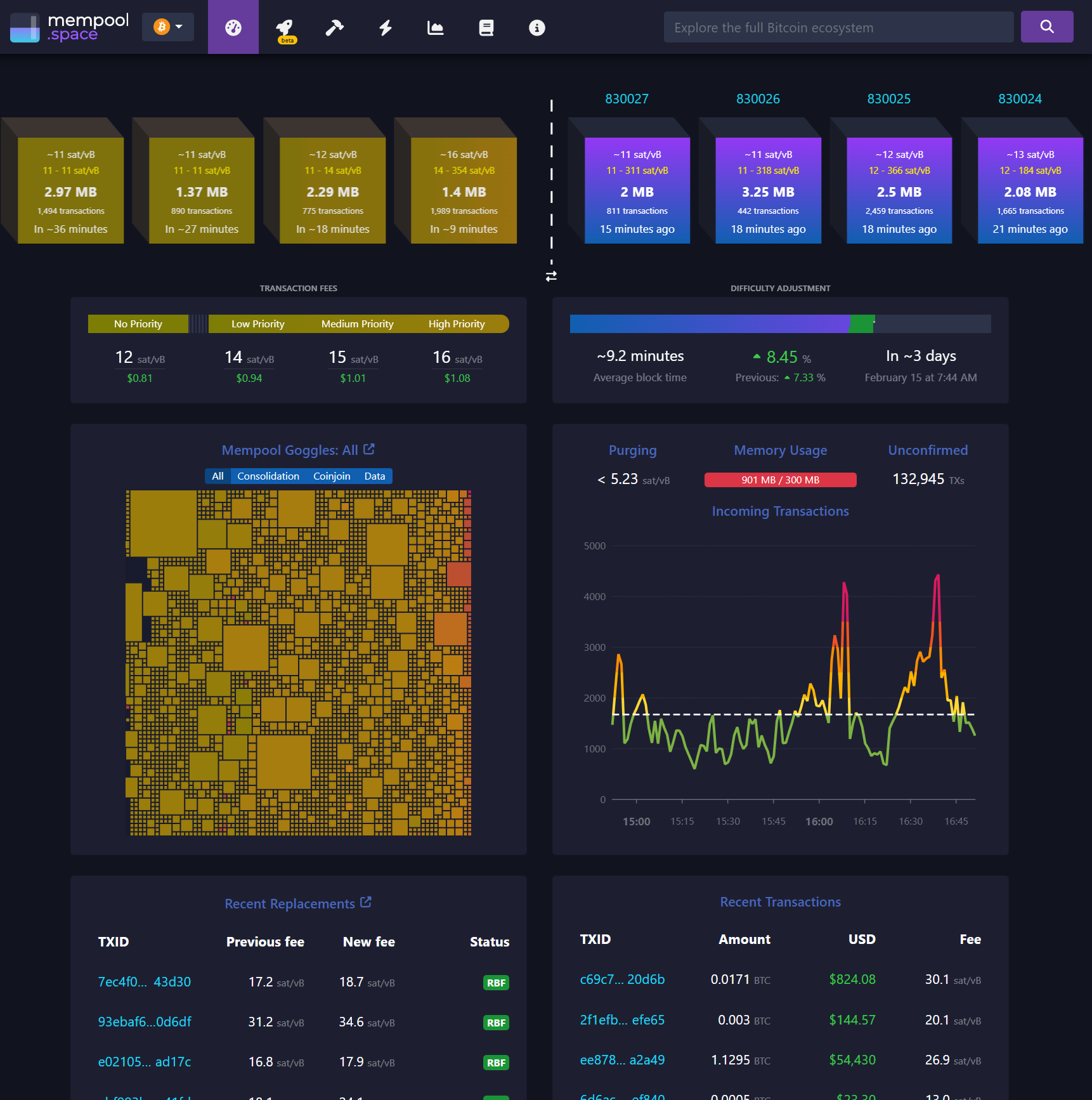
Bitcoin and Mempool Explained

Mempool
The mempool (memory pool) is a collection of all unconfirmed transactions waiting to be included in a Bitcoin block. Transactions remain in the mempool until a miner selects them for inclusion in a block. The size and state of the mempool fluctuate based on transaction volume and block capacity. Learn more.
Transaction Fees
Transaction fees are incentives paid by users to miners for including their transactions in a block. Fees vary based on transaction size and network demand. Higher fees can prioritize a transaction during times of congestion. These fees are a significant part of miners' revenue. Learn more.
Mempool Consolidation
Mempool consolidation involves combining multiple inputs into a single transaction to optimize future transaction fees and wallet management, particularly during periods of low network activity. This practice can reduce the mempool size and improve transaction efficiency. Learn more.
Difficulty Adjustment
Bitcoin's difficulty adjustment mechanism ensures a consistent block time of approximately 10 minutes by adjusting the mining difficulty according to the network's total hashing power. This adjustment occurs every 2016 blocks to maintain steady bitcoin issuance and network security. Learn more.
Purging
In the Bitcoin mempool, purging refers to the removal of transactions that have not been confirmed within a certain period, often due to low attached fees. Users may resend these transactions with higher fees for confirmation. Learn more.
Memory Usage
The memory usage of a node is influenced by the size of its mempool, as a larger mempool requires more RAM. This aspect is crucial for the operation of nodes, especially those with limited resources. Learn more.
Unconfirmed Transactions
Unconfirmed transactions are transactions that have been broadcast to the network but not yet included in a block. The duration these transactions remain unconfirmed can vary significantly. Learn more.
Incoming Transactions
Incoming transactions are new transactions broadcast to the network, awaiting verification and addition to the mempool. The rate of incoming transactions influences network congestion and mempool size. Learn more.
Recent Replacements
Recent replacements refer to the mechanism of transaction replacement in the Bitcoin network, specifically through the use of Replace-By-Fee (RBF). This allows a sender to replace an unconfirmed transaction with a new one that includes a higher fee, ensuring faster confirmation. This is particularly useful in times of high network congestion. Learn more.
Recent Transactions
Recent transactions typically refer to the latest transactions that have been confirmed and added to the blockchain. Monitoring recent transactions can provide insights into the network's activity, fee trends, and potential congestion. Learn more.